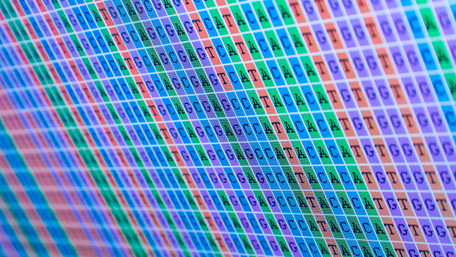
Deep sequencing of 10,000 human genomes
- Amalio Telentia,b,1,
- Levi C. T. Piercea,c,1,
- William H. Biggsa,1,
- Julia di Iulioa,b,
- Emily H. M. Wonga,
- Martin M. Fabania,
- Ewen F. Kirknessa,
- Ahmed Moustafaa,
- Naisha Shaha,
- Chao Xied,
- Suzanne C. Brewertond,
- Nadeem Bulsaraa,
- Chad Garnera,
- Gary Metzkera,
- Efren Sandovala,
- Brad A. Perkinsa,
- Franz J. Ocha,c,
- Yaron Turpaza,d, and
- J. Craig Ventera,b,2
- Contributed by J. Craig Venter, August 18, 2016 (sent for review July 1, 2016; reviewed by David B. Goldstein and Stephen W. Scherer)
Significance
Large-scale initiatives toward personalized medicine are driving a massive expansion in the number of human genomes being sequenced. Therefore, there is an urgent need to define quality standards for clinical use. This includes deep coverage and sequencing accuracy of an individual’s genome. Our work represents the largest effort to date in sequencing human genomes at deep coverage with these new standards. This study identifies over 150 million human variants, a majority of them rare and unknown. Moreover, these data identify sites in the genome that are highly intolerant to variation—possibly essential for life or health. We conclude that high-coverage genome sequencing provides accurate detail on human variation for discovery and clinical applications.
Abstract
We report on the sequencing of 10,545 human genomes at 30×–40× coverage with an emphasis on quality metrics and novel variant and sequence discovery. We find that 84% of an individual human genome can be sequenced confidently. This high-confidence region includes 91.5% of exon sequence and 95.2% of known pathogenic variant positions. We present the distribution of over 150 million single-nucleotide variants in the coding and noncoding genome. Each newly sequenced genome contributes an average of 8,579 novel variants. In addition, each genome carries on average 0.7 Mb of sequence that is not found in the main build of the hg38 reference genome. The density of this catalog of variation allowed us to construct high-resolution profiles that define genomic sites that are highly intolerant of genetic variation. These results indicate that the data generated by deep genome sequencing is of the quality necessary for clinical use.





















.png)










No hay comentarios:
Publicar un comentario